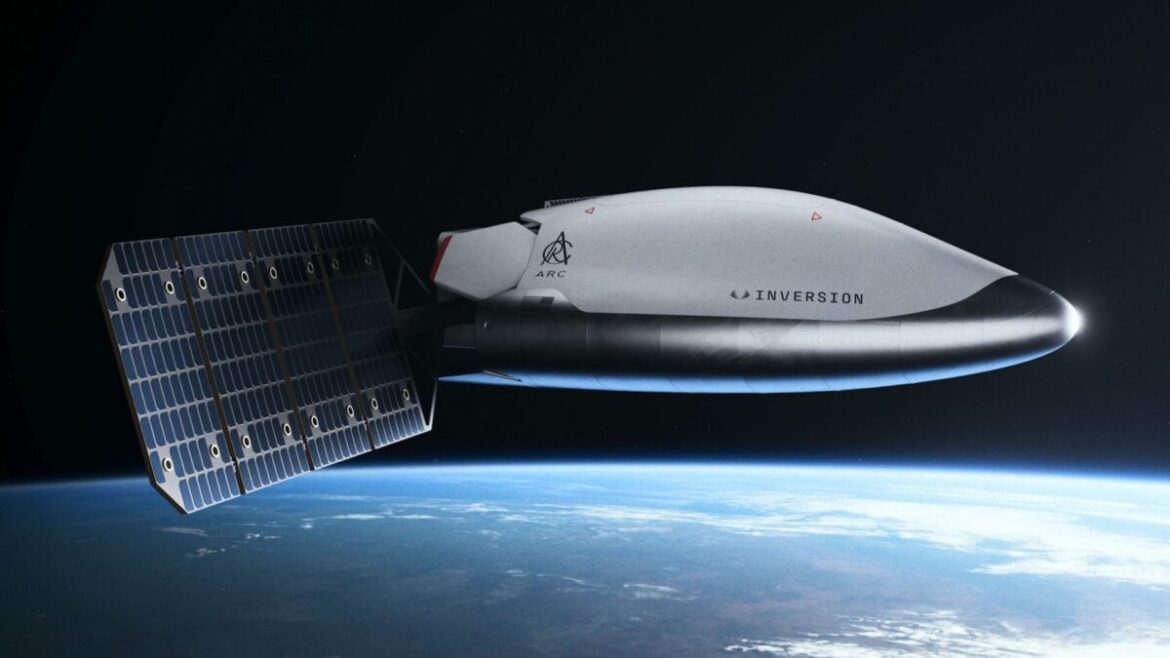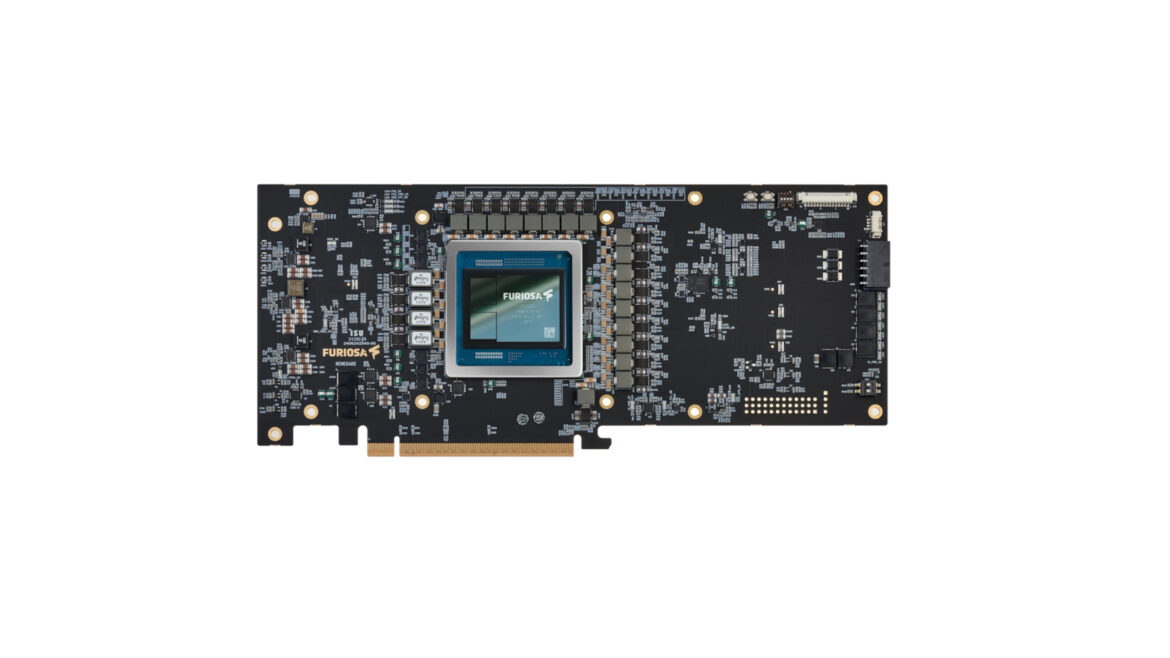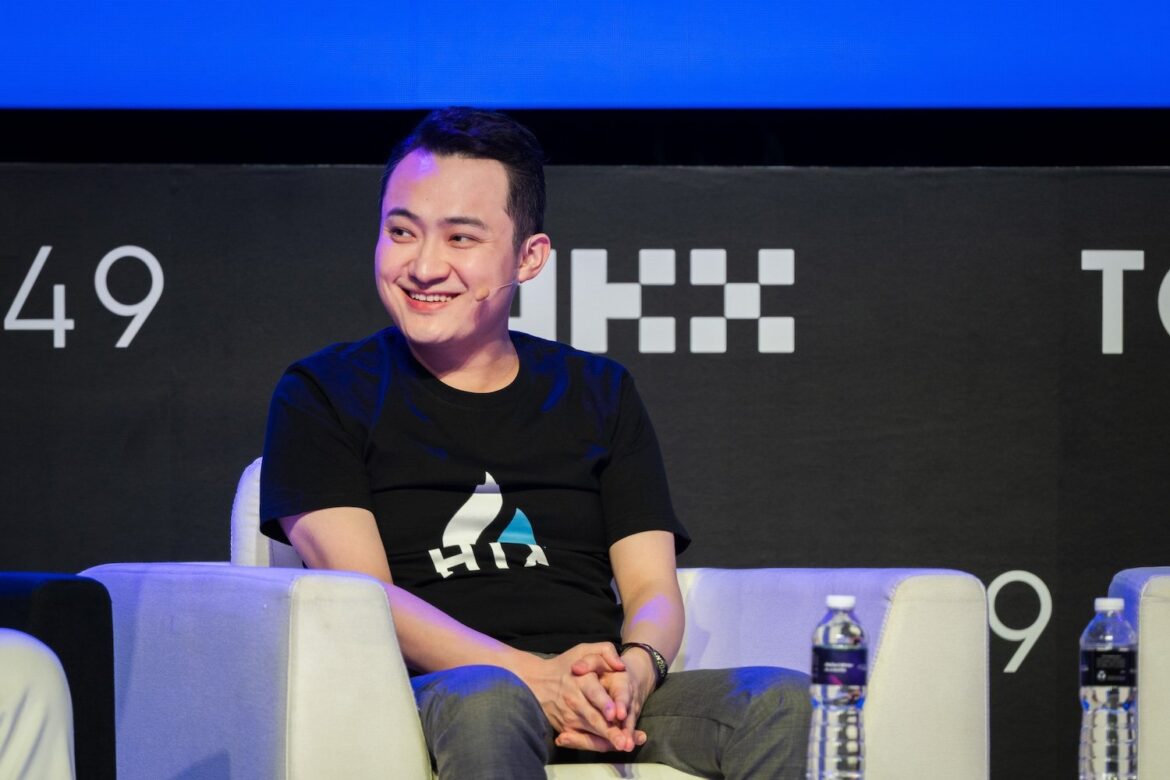A new kind of delivery system is being set up in low Earth orbit. Inversion Space, a relatively small space startup founded in 2021, is prepping its space-based delivery vehicle for flight. The reusable spacecraft is designed to drop off cargo from space to Earth on a tight schedule, building a constellation of on-demand vehicles parked in orbit.
This week, Inversion unveiled its flagship Arc vehicle, a 4-foot wide, 8-foot tall spaceplane, cargo capsule hybrid capable of carrying 500 pounds (225 kilograms) of supplies. The California-based startup is aiming to launch Arc by the end of 2026, building on the lessons learned from the inaugural mission of its demo vehicle earlier this year.
Space delivery
The idea behind building Arc is not just providing access to space, but rather being able to deliver cargo from orbit to anywhere on the planet within an hour’s time. The autonomous vehicle will launch to low Earth orbit, where it will be positioned there to store cargo for up to five years.
When needed, Arc is built to reenter through the atmosphere and land on Earth using parachutes. The spacecraft is equipped with a deorbit engine and an autonomously maneuverable parachute to help it make its way down to the surface. It’s built to withstand hypersonic speeds, capture and deploy assets, as well as rendezvous with other spacecraft in orbit.
Inversion’s vision is to be able to deploy a constellation of its reusable vehicles in orbit, and return them to Earth based on the needs of its customers. The company is specifically targeting military payloads, hoping the U.S. military can make good use of the vehicle’s speediness at returning to Earth. “Arc reshapes defense readiness by enabling access to anywhere on Earth in under an hour – allowing for the rapid delivery of mission-critical cargo and effects to austere, infrastructure-limited, or denied environments,” Inversion Space wrote on X. “This capability establishes space as a new global logistics domain, introducing unprecedented speed, reach, and resiliency for national security.”
Inversion launched its first vehicle in January as part of SpaceX’s Transporter-12 rideshare mission. The spacecraft, named Ray, was a demonstration of the company’s new technologies, testing its in-orbit systems and reentry capabilities. The mission was mostly a success, but Ray experienced a propulsion malfunction that hindered its ability to reenter through Earth’s atmosphere.
“Our first spacecraft, Ray, has completed its mission on-orbit – serving as an extremely successful testbed for validating key technologies despite not attempting re-entry due to an on-orbit short circuit in a component preventing our deorbit engine from igniting,” the company wrote in a statement.
The company notes that nearly all systems on board the spacecraft were built in-house with a small team of 25 people. Inversion may be a newcomer to the space industry, but the startup is aiming to build hundreds of its vehicles per year and establish a constellation of cargo reentry spacecraft by 2028.








